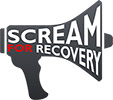Recognizing drug addiction isn’t always easy, especially if a loved one is adept at hiding their condition. While physical signs like tremors, confusion or reduced motor skills can be easy to spot, such behaviors don’t always clearly suggest drug abuse or drug addiction. What families should remember, however, is that changes in behavior are always worth noting. Moreover, when multiple behavioral signs are present, families should, indeed, suspect a problem that needs addressing.
What are the signs of alcohol or drug addiction?
If you are worried that your loved one is battling a reliance on alcohol or a secret substance abuse problem, the following are common behavioral signs associated with drug addiction:
Poor Performance
If your loved one is exhibiting uncharacteristic reduced performance at work or school, coupled with one or two other behavioral issues, it should be taken as a red flag indicating a problem.
Increased Secrecy
While most of us feel protective of our privacy increasingly secretive behavior could be cause for concern. If someone you love is being secretive to you in a way that is unusual for your relationship, you may feel the need to get to the bottom of the issue.
Financial Issues
If you notice money missing or your loved one needs money on a regular basis for unexplained reasons that don’t ring true to you, you might suspect a problem. Financial problems often accompany drug use and addiction.
Change in Habits
It could be a cause for concern if a person no longer participates in hobbies or pastimes they formerly enjoyed. A negative change in their personal grooming habits on a regular basis could also be a sign that something is amiss.
Missing Medications
If you find that prescription pills go missing on a regular basis, an addicted loved one could be taking them, particularly if they are painkillers, stimulants or central nervous system drugs, like Ambien, Xanax or Valium.
Dishonesty
Loved ones can behave uncharacteristically when abusing drugs. Chronic dishonesty is definitely a warning sign that something untoward is going on. If you repeatedly catch your loved one in lies, you need to track down the truth for your own good as well as theirs.
Angry Episodes/Temper Tantrums
An addict who cannot obtain their substance of abuse may become irate. Addicted teens might exhibit temper tantrums that are out of character for them. These behaviors could be indications of a drug problem.
Possession of Drugs or Drug Paraphernalia
“I’m just holding onto this for a friend.” Many addicts will say anything except the truth even when caught red-handed with drugs or drug paraphernalia. While it can be tempting to believe something we wholeheartedly want to believe, you should never accept this statement as true without a drug test to back it up, especially if the suspected drug user is a minor.
The Wrong Friends
If your loved one has formed new friendships with known drug users, you should suspect a problem, especially if they are neglecting former friends who do not use drugs.
Understandably, many families find it difficult to believe their loved one has become addicted to drugs. It’s important to remember that addiction happens to good people. Suspecting a drug addiction based on signs like these is not insulting them; it’s protecting them. If you suspect your loved one has a drug problem, consider staging an intervention and encourage them to seek drug addiction treatment right away.

